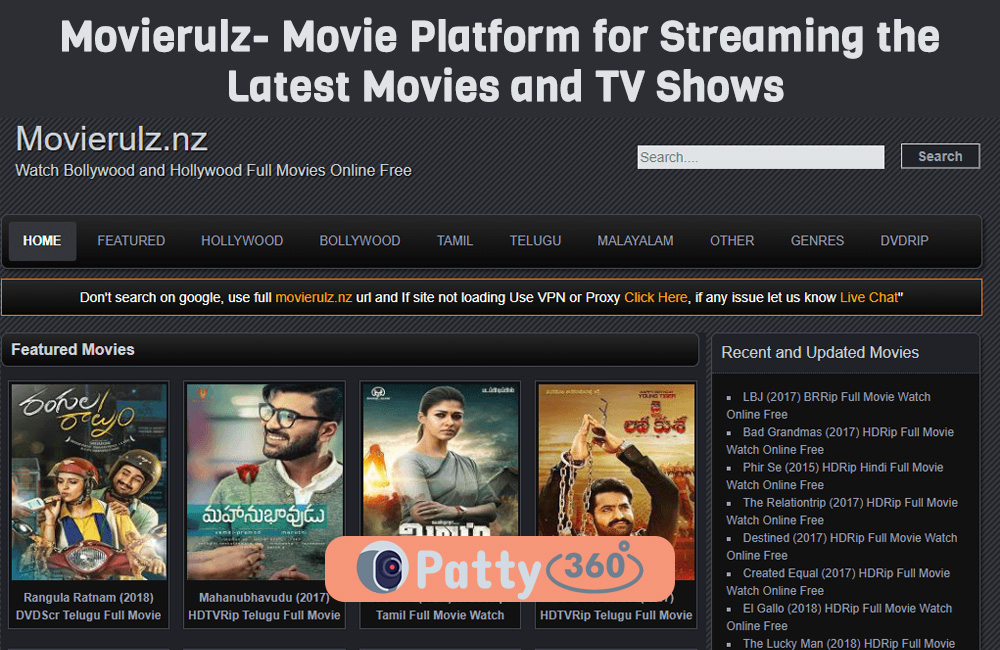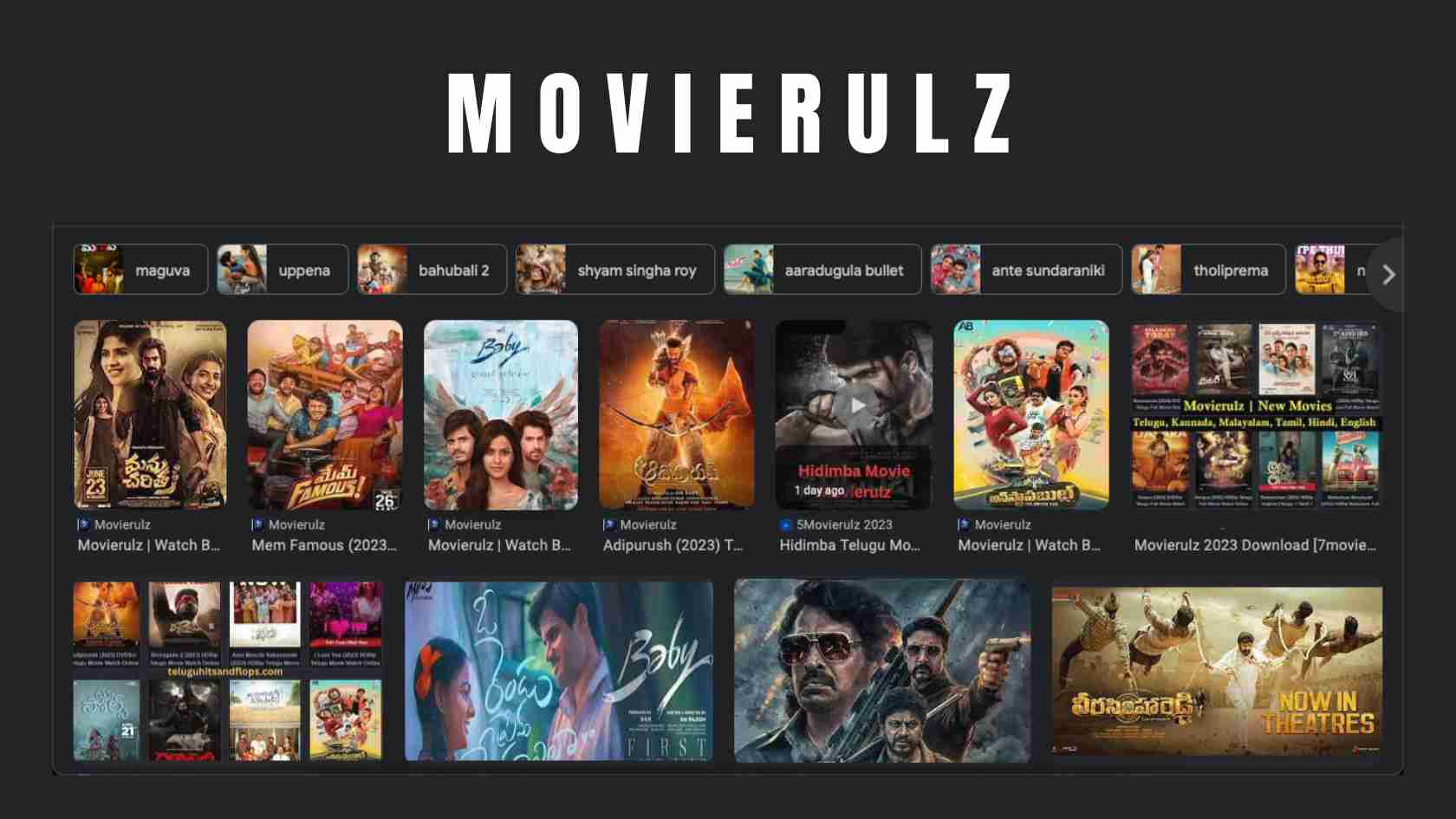Is the allure of instant access to the latest cinematic releases truly worth the potential legal and ethical pitfalls? The dark side of online movie streaming and downloading is a complex issue, and understanding it is crucial in today's digital landscape.
The world of online entertainment has undergone a seismic shift, with streaming services and digital downloads becoming the norm. Yet, amidst this evolution, a shadowy undercurrent persists: the realm of movie piracy. Websites such as Movierulz, once a prominent name in this illicit trade, epitomize the challenges faced by the entertainment industry. This article delves into the intricacies of Movierulz, its operations, and the broader implications of its activities. The focus is not to glorify or promote any illegal activity, but to provide a comprehensive overview of the situation and its impact on the industry.
The digital ecosystem that spawned these platforms is complex, so a deeper understanding of piracy websites, their methods, and the content they offer is critical for viewers.
| Category | Details |
|---|---|
| Website Name | Movierulz |
| Type | Piracy Website |
| Primary Activity | Illegal streaming and downloading of copyrighted movies and TV shows. |
| Content | Telugu, Tamil, Kannada, Hindi, Malayalam, English, and other language films, along with web series and TV shows. |
| Target Audience | Users seeking free access to movies and TV shows, often bypassing legal streaming platforms. |
| Geographic Reach | Worldwide, with a significant focus on the South Asian market. |
| Revenue Model | Primarily through advertisements, which can include intrusive and potentially harmful ads. |
| Risks for Users | Legal repercussions, exposure to malware and viruses, and supporting illegal activities. |
| Associated Risks | Data privacy violations and compromised security. |
| Legal Status | Illegal, violating copyright laws. |
| Alternative Sources | Legitimate streaming services such as Netflix, Amazon Prime Video, Zee5, and others. |
| Address | The website does not have a physical address; it operates in a virtual space. Addresses such as "10091 Jeb Stuart Parkway, Glen Allen VA 23060" are unrelated to its operations. |
| Reference | Wikipedia - Copyright Infringement |
Movierulz, like many similar platforms, operates in a legal gray area, often evading authorities by constantly changing domain names and server locations. The site offers an extensive library of movies, encompassing a wide range of genres and languages, including the latest releases. It provides users with a seemingly convenient means of accessing content, but this convenience comes at a considerable cost.
The website's offerings included not only the latest Tollywood, Bollywood, and Hollywood releases, but also a broad selection of South Indian cinema. For those interested in Telugu, Tamil, Kannada, and Malayalam movies, Movierulz was a go-to destination. The site's interface was designed to be user-friendly, making it easy for visitors to find and stream their desired content. High-definition (HD) quality was often promoted, further enhancing its appeal.
The site's distribution model was also a key part of its operation. It provided access to movies in various formats, including web series and TV shows, and included both original and pirated versions of content. Movierulz would often upload pirated versions of Hindi, Tamil, Telugu, English, Malayalam, and other language films, capitalizing on the desire for immediate access. It also provided reviews, movie news, and trailers, effectively replicating many of the services offered by legitimate entertainment news sources.
The implications of using sites such as Movierulz are serious. Copyright infringement is a significant legal violation. Moreover, these sites often contain malware and viruses, putting users' devices and data at risk. The financial impact on the film industry is also substantial. Every download represents lost revenue for the studios, producers, and artists involved in creating the content.
The availability of content on platforms like Movierulz changes frequently. The movie catalog is often updated to include the most recent releases. The platform is known for providing access to movies from various industries, especially Telugu, Kannada, and Tamil cinema. This constant addition of new content further expands its appeal to a broad audience.
While Movierulz may have once been a prominent player, the crackdown on piracy websites has made it challenging for them to operate. Many of these sites have been taken down, only to reappear under new domain names or in different forms. The ever-evolving cat-and-mouse game between copyright holders and pirates continues, with the pirates constantly seeking new methods of circumventing legal restrictions.
It's also worth noting that the legality of streaming and downloading movies varies depending on the country and the specific laws governing copyright. In many regions, accessing copyrighted content without permission is illegal, with significant consequences, including fines and potential legal action. The use of VPNs and other tools to mask one's location does not necessarily protect users from these legal risks.
The popularity of sites like Movierulz stems from a combination of factors. First, the allure of free content is a powerful draw. Second, the demand for immediate access to new releases drives consumers to seek alternatives to legal platforms. Third, the geographic restrictions placed on some streaming services can limit access for users in certain regions. However, these factors should not overshadow the potential consequences of using these websites.
The impact of piracy extends beyond the immediate financial losses suffered by the entertainment industry. It affects the overall creative ecosystem. Reduced revenue can result in lower investment in new films and television shows, fewer opportunities for artists, and a decrease in the quality of content.
Legitimate options for consuming movies and TV shows are more prevalent than ever. Streaming services such as Netflix, Amazon Prime Video, Disney+, and Zee5 offer vast libraries of content, often with high-quality streaming and user-friendly interfaces. These platforms provide a convenient and legal way to access movies and TV shows while supporting the creative industries.
Furthermore, many cinemas, such as the Regal Columbus Movie Theatre in Virginia Beach, offer movie tickets and showtimes, providing a social and immersive cinematic experience. Watching movies in theaters offers a way to support the film industry legally and experience content as it was intended to be seen.
The availability of content on legitimate platforms, coupled with the legal risks and technical hazards associated with piracy, should encourage viewers to re-evaluate their choices. While platforms like Movierulz may offer convenience, the long-term costs far outweigh the immediate benefits. Instead, supporting the creators and distributors of the content we enjoy by choosing legal means is the best way to safeguard the future of entertainment.
The fight against piracy is ongoing, and it requires the active participation of both industry and consumers. By understanding the implications of piracy and choosing legal methods of accessing content, we can help ensure a thriving creative environment for years to come.
The existence of piracy websites like Movierulz raises fundamental questions about the ethics of online content consumption. The temptation of instant, free access to movies and TV shows must be balanced against the potential for legal repercussions, the risk of malware, and the overall support of illegal activities. As the digital landscape continues to evolve, it is crucial to stay informed and make choices that align with both personal values and legal requirements.
In conclusion, while sites like Movierulz may have provided a means of accessing entertainment, they represent a significant threat to the creative industries and pose numerous risks to users. By choosing legal and ethical alternatives, we can help protect the future of film, television, and other forms of creative expression. It is a matter of recognizing the value of the content we consume and supporting the creators who bring these stories to life.


